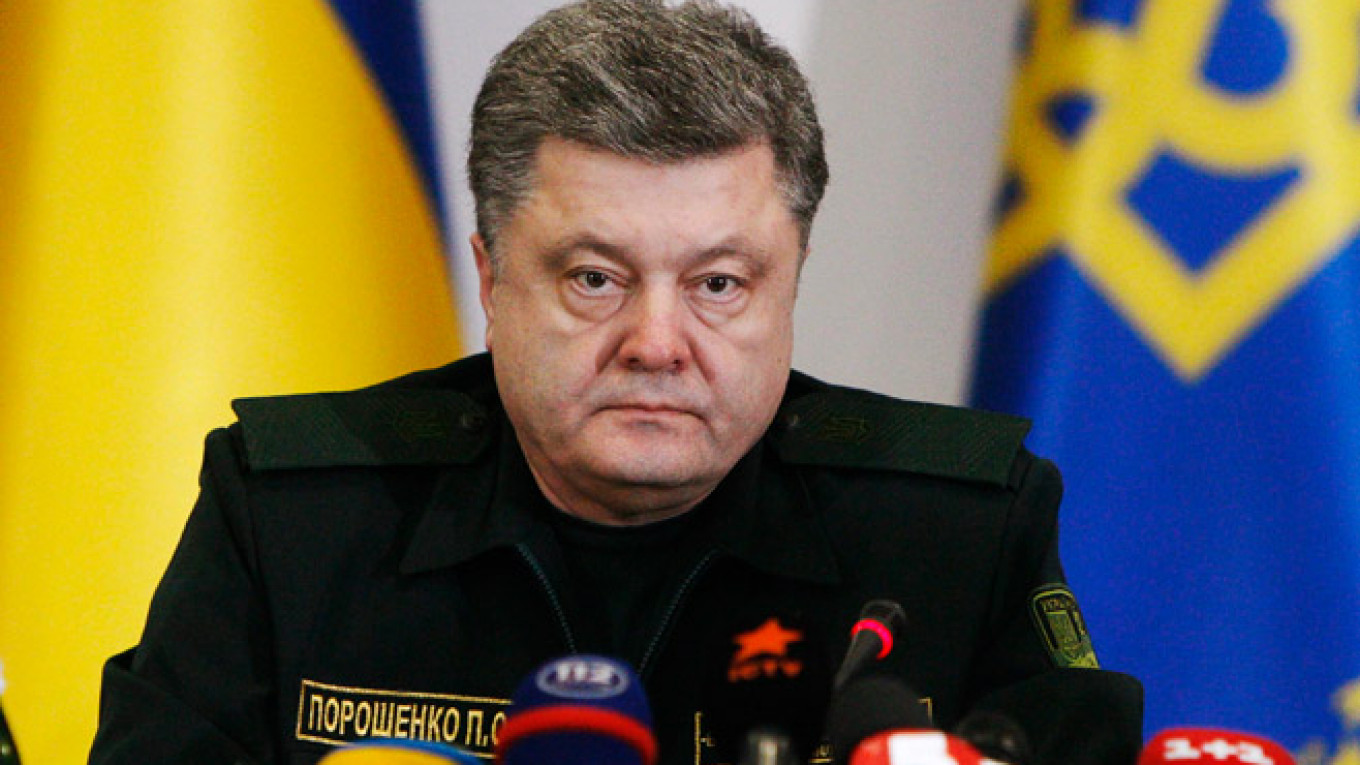The best that could be said about the Minsk II agreement is that it allows Russia to pursue its strategic objectives in Ukraine through means other than war.
The deal does not grant Moscow's wish of establishing effective control over Ukraine's foreign and defense policies, but, unlike the previous Minsk agreement, it creates a political process that gives the Kremlin an indirect say in shaping Ukraine's strategic choices.
Moscow's interest in the deal, apart from warding off Western sanctions, lies in forcing Kiev to negotiate directly with the Donetsk and Luhansk republics over the scope of their future autonomy within a "redesigned" Ukrainian state under a new constitution.
The Minsk II document requires Kiev to haggle with the separatists, and by their proxy with Moscow, over all sorts of things — from arrangements for local elections and restoration of social benefits to the formation of a "people's militia," and the framework for the new Ukrainian constitution that would grant the separatist regions a "permanent special status."
To guarantee that Kiev is incentivized to engage with the separatists, Moscow conditioned the transfer of the state border with Russia to Ukrainian control with the completion of the "political settlement" and "constitutional reform."
Given that Moscow and Kiev view the results of such "constitutional reform" differently, with Russia seeing the "special status" extending to veto power over Ukraine's foreign policy, it ensures a messy bargaining process giving Moscow plenty of leverage.
Ukrainian President Petro Poroshenko lacks the votes in parliament to push through such constitutional changes and he has been politically weakened by the unfair deal in Minsk.
Moscow will be well positioned to exploit internal fissures in Ukrainian politics to secure a hold on Kiev's policies. In Kiev, Russia would use the "constitutional reform" to engineer the unraveling of the ruling coalition of pro-Western parties, bringing down the government of Arseniy Yatsenyuk, whom Moscow views as an "American puppet."
With Poroshenko now hostage to Russia's goodwill to return Ukraine's territory, he could be "persuaded" to form a new ruling coalition with the Opposition Bloc — made up of holdovers from the regime of former Ukrainian President Viktor Yanukovych — and slow down on European integration.
This would bring Moscow within reach of its ultimate objective — control over Ukraine's future.
Vladimir Frolov is president of LEFF Group, a government relations and PR company.
A Message from The Moscow Times:
Dear readers,
We are facing unprecedented challenges. Russia's Prosecutor General's Office has designated The Moscow Times as an "undesirable" organization, criminalizing our work and putting our staff at risk of prosecution. This follows our earlier unjust labeling as a "foreign agent."
These actions are direct attempts to silence independent journalism in Russia. The authorities claim our work "discredits the decisions of the Russian leadership." We see things differently: we strive to provide accurate, unbiased reporting on Russia.
We, the journalists of The Moscow Times, refuse to be silenced. But to continue our work, we need your help.
Your support, no matter how small, makes a world of difference. If you can, please support us monthly starting from just $2. It's quick to set up, and every contribution makes a significant impact.
By supporting The Moscow Times, you're defending open, independent journalism in the face of repression. Thank you for standing with us.
Remind me later.








